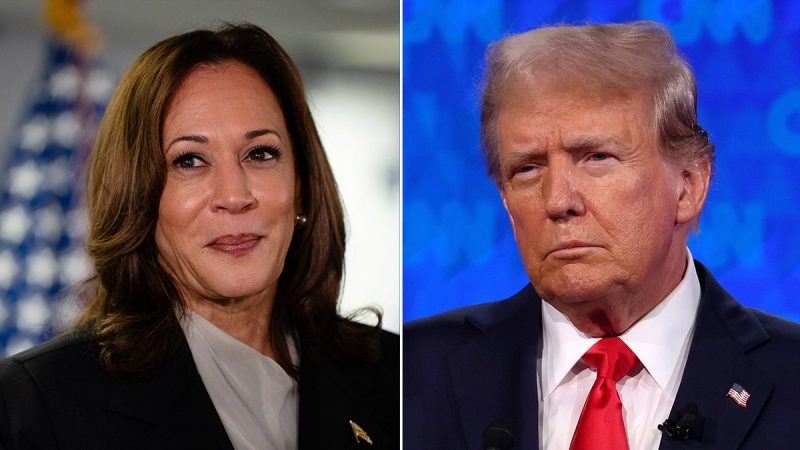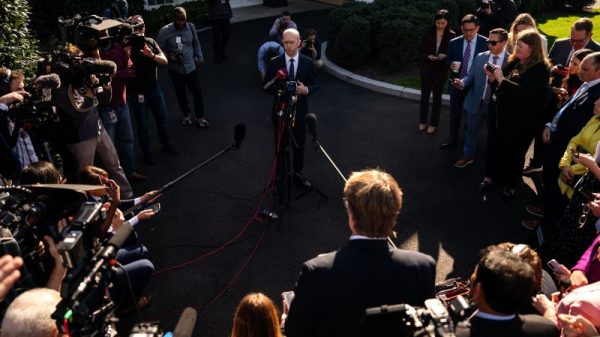The American health care system is broken. Conflicts of interest dominate the structure, killing any chance we have for a healthier nation. Patients pay more and stay sick. Politicians argue and nothing changes.
But this problem presents a unique opportunity for our fractured society: as ‘Fox and Friends Weekend’ co-host Rachel Campos-Duffy said last week, better health outcomes may be the most unifying issue of our time.
In 2019, to no great fanfare, the Trump administration made vital adjustments to set the stage for transforming today’s chronic disease system that keeps patients sick to a true health system that makes people well.
Under the leadership of Seema Verma, then director of our nation’s Medicaid and Medicare systems, we developed crucial infrastructure to demonstrate the transformative potential of integrated health care systems. Simply put, four new Medicare billing codes were added to fund chronic care management and continuous remote disease monitoring.
With this, we set a course to address more than 75% of the nation’s $4 trillion in annual health care costs: chronic disease management. Before we could implement this simple bipartisan reform, the coronavirus pandemic seized the world. Priorities changed quickly.
These codes, and the work that went into establishing them, are still the foundation of fundamental reform. The next administration, Republican or Democrat, must follow through on that work to transform structural health care problems. This will cut costs while improving the health of our nation.
Our problems are driven by the conflict of interest between health care providers and insurers. Providers are incentivized to maximize patient visits and treatments; insurers strive to minimize payouts. This misalignment plagues our nation with fragmented care, higher costs and poor patient outcomes.
Indeed, this conflict kills.
To address this, we must integrate health care services with insurance functions under a unified model. Integrated and aligned, health care providers and insurers work together to improve patient health outcomes.
By also leveraging advanced technologies like artificial intelligence (AI), machine learning and ‘internet of things’ (IoT), we will create continuous and proactive engagement with patients, particularly those with chronic conditions. This model provides personalized care and early interventions, reducing the need for costly emergency treatments and hospitalizations.
The primary focus of this model is patient well-being and improved outcomes. AI monitoring helps predict health issues and enables timely interventions which prevent complications and greatly enhance patient outcomes. Importantly, effective chronic disease management also reduces overall costs to the health care system.
Continuous monitoring and data analytics allow for better risk assessment and management. Insurers can dynamically adjust premiums based on real-time health data, rewarding patients for healthy behaviors and adherence to treatment plans. This incentivizes patients to take better care of their health and reduces the financial risk for insurers by minimizing high-cost claims.
The integration also leads to significant cost savings by reducing administrative overhead and eliminating redundant processes. With a unified system, there is a seamless flow of information between patients, health care providers and insurers. This brings better resource utilization and operational efficiency while improving workflows that highlight prevention.
The savings can be reinvested into patient care and technology advancements. This will further improve the system and our nation’s health.
For health care providers already integrated, like University of Pittsburgh Medical Center and Kaiser Permanente, the model improves crucial metrics for success: more consistent patient engagement and better health outcomes.
Providers will be able to prioritize their time to those who will benefit the most while doctors supervise AI-driven routine interactions. Meanwhile, much healthier patients will enjoy personalized care and lower insurance premiums.
Technology advancements are key to addressing ongoing health care structural problems. AI and IoT devices monitor patient health in real-time, detecting potential health issues early and facilitating timely interventions. For instance, AI can help assess and identify patients at high risk of developing chronic conditions, prompting preventive measures to avert serious health problems.
By understanding and engaging patient behaviors, we can encourage adherence to treatment plans and healthy lifestyle choices. To reduce the frequency and severity of claims, chronic disease patients can be urged toward more healthy behavior – ‘no more sweets today’ texts can save lives.
The integrated model has far-reaching implications for both the health care and insurance sectors. It challenges the traditional silos and fosters a collaborative approach to health care delivery and insurance management. By aligning the goals of both sectors, the model ensures financial incentives are directed toward maintaining and improving patient health, not just managing illness.
This shift toward a proactive, patient-centered approach is particularly transformative for managing chronic diseases, which are major cost drivers in the health care system. With the continuous engagement and personalized care Director Verma envisioned in 2019, patients with chronic conditions can achieve better health outcomes. This saves money and lives.
The future of health care is clear and bipartisan: an integrated system focused on improved health outcomes. Building on the infrastructure we established in 2019, this model leverages advanced technologies and a unified approach to healthcare and insurance, promising sustainable and scalable improvements – and better care for all.





























